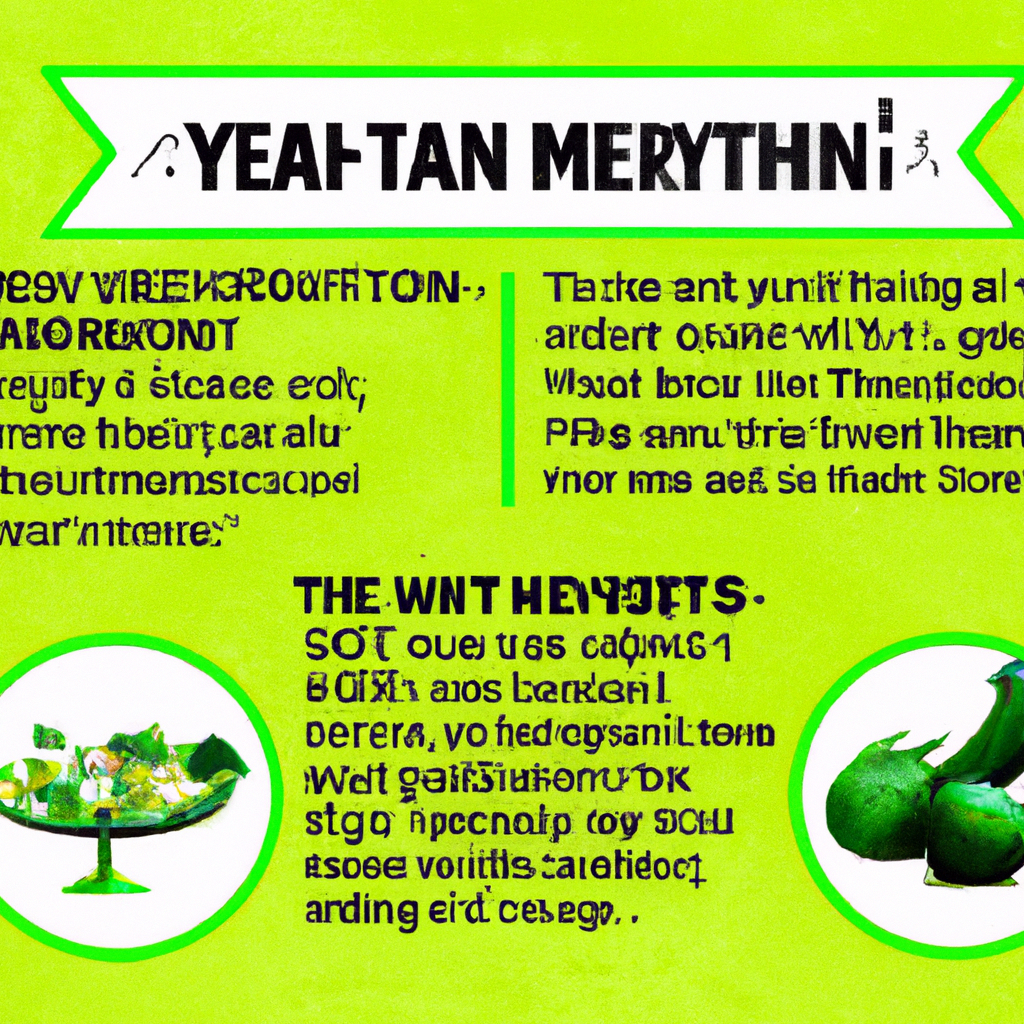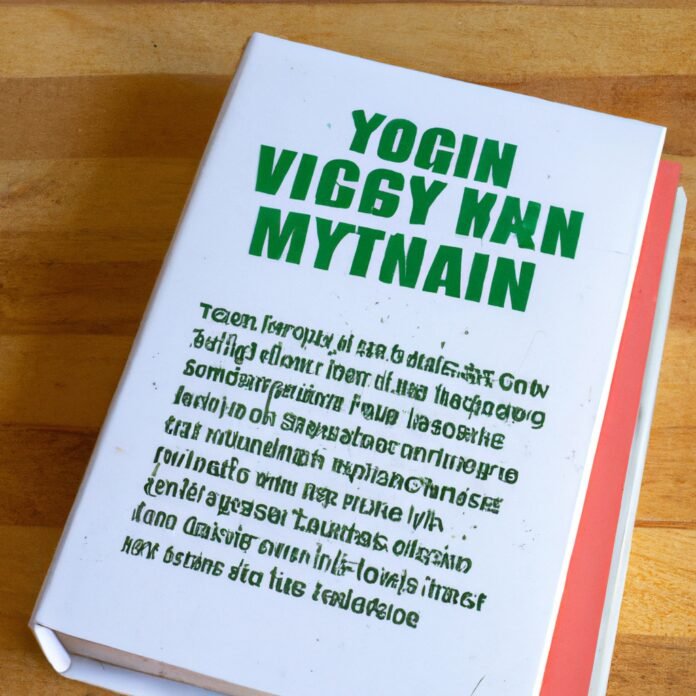From ice cream to burgers, veganism has been on the rise, with people around the world saying goodbye to animal-based diets. While it’s certainly a healthier option, myths about vegan nutrition have been flying around. Let’s put them to rest once and for all. Here’s the truth behind common vegan nutrition myths. Hopefully this will give you the information you need to make your own decisions about going vegan!
1. “Shattering the Myths: Unveiling the Truth behind Vegan Nutrition”
Vegan nutrition has gained immense popularity in recent times. And with its growing popularity, so have the myths surrounding it. In many people’s minds, vegan nutrition has become synonymous with diets that are too extreme and bindings, depriving their bodies of essential nutrients.
But the truth is vegan nutrition can provide all the nutrients needed for optimal health and functioning. In fact, many health organizations, such as the Academy of Nutrition and Dietetics, American Dietetic Association, and Dieticians of Canada, recognize the vegan diet as nutritious and healthy.
Below are four keto myths busted for you to understand the real face of vegan nutrition:
- Myth #1: vegans are deficient in calcium and protein.
A vegan diet should provide plenty of protein as long as you eat a wide variety of plant-based proteins such as lentils, chickpeas, beans, nuts, seeds and whole grains. For calcium, non-dairy sources like almond milk, fortified orange juice, tofu, and dark leafy greens are great.
- Myth #2: vegan diets are only for certain people.
A vegan diet is suitable for all people of all ages. And each person can tailor it to their individual needs, such as vegan athletes adding more protein to their diets or adults needing more or less calories each day based on their activity level.
- Myth #3: vegan diets are expensive.
Though vegan foods can be expensive, you can still build a budget friendly vegan diet. Rice, potatoes, legumes, and frozen fruits and vegetables are much more cost-effective. Eating out in vegan-friendly restaurants is expensive, so stock up and shop wisely.
- Myth #4: vegan diets are boring.
There is an abundance of delicious vegan meals to choose from. Whether it’s a colorful salad, plant-based tacos, a creamy smoothie, or a warm grain bowl, vegan nutrition offers plenty of ways to enjoy meals without having to sacrifice flavor or nutrition.
For optimal health, practice a healthy vegan lifestyle. Get plenty of exercise, stay hydrated, and learn how to make vegan nutrition work in your favor.
2. “Separating Fact from Fiction: Dissecting Common Vegan Nutrition Misconceptions”
Veganism is often perceived as an extreme diet, leaving many to wonder if it’s safe for long-term health. And while its benefits are now widely recognized in traditional medical circles, certain misperceptions about the health implications of vegan nutrition stores. Let’s take a look at a few of the most common myths and uncover how to differentiate fact from fiction.
- Myth: Vegans Are Protein-Starved
It’s true that when following a vegan diet, getting enough protein is a key concern. But contrary to what some might believe, eating enough protein isn’t a challenge for those abstaining from animal proteins. In fact, an abundance of vegan-friendly foods contain plenty of protein, including nuts, legumes, each, quinoa, and oatmeal.
- Myth: Dairy is Necessary for Healthy Bones
The belief that dairy is necessary for maintaining healthy bones is pervasive, but evidence refuting this connection is growing. In fact, kale, one of the most popular vegetables in the vegan diet, contains more calcium than a single serving of whole milk. Other calcium-rich vegan foods include fortified tofu, bok choy, almonds, and tahini.
- Myth: Vegan Diets Lack Essential Vitamins and Minerals
The fact that many vegans choose to supplement their diets is often used by critics to assert that vegan diets are inherently deficient in certain vitamins and minerals. But this is not necessarily the case: many full-spectrum vegan foods, such as mushrooms, seaweed, spirulina, and nutritional yeast are rich in iron, vitamin B, Vitamin D, and other essential nutrients.
- Myth: All Vegan Diets are Alike
Finally, vegans come in all shapes and sizes, with diets that range from vegan-friendly junk food to nutrient-rich whole-foods. It’s worth emphasizing that a vegan diet can take on all sorts of different forms. So while some cracked-out processed vegan foods may be nutrient-poor, it’s possible to craft an amazingly rich and healthy vegan diet using a variety of versatile ingredients.
3. “Untangling the Web of Vegan Nutrition Misinformation: Reveal the Real Skinny”
Vegan nutrition has come under intense scrutiny in recent years, leaving many debating the true benefits and drawbacks of such a diet. However, a closer look at nutrition research reveals that vegan diets are indeed beneficial, and the reported risks may be largely overstated or misunderstood. Here are a few common “myths” about vegan nutrition – and the truth behind them.
- Myths: Vegans need to take supplements for protein & calcium. Truth: It is true that vegans do not get the required daily intake of vitamins and minerals from animal products. However, there are plenty of foods and food products available to vegans that are fortified with the same vitamins and minerals found in animal products. For example, some plant-based milks are very high in calcium and protein, making them an excellent choice for vegans.
- Myths: Vegans are unhealthy and lacking in nutrition. Truth: A vegan diet can be extremely nutritious and healthy. Studies show that vegan diets are associated with a wide range of health benefits such as lower risk of heart disease, cancer, diabetes, and obesity. Furthermore, Vegan diets are often higher in dietary fiber, potassium, magnesium, folate, and antioxidants than non-vegan diets and can lower levels of bad cholesterol and blood pressure.
- Myths: Vegans are more susceptible to deficiencies. Truth: While some vitamins and minerals can be harder to come by on a vegan diet, supplements or fortified foods can make up for any deficiencies. For example, vegans can get their Vitamin B12 from fortified foods or supplements, and iron can be found in dark green leafy vegetables and fortified grains. As long as a vegan is monitoring their intake of vitamins and minerals and supplementing when needed, they can remain healthy on a vegan diet.
Research has made it clear that vegan diets can be highly nutritious and can offer numerous health benefits. While some vitamins and minerals are harder to come by on a vegan diet, supplements or fortified foods can make up for any deficiencies. Moreover, the health benefits of vegan diets far outweigh any perceived risks, making vegan nutrition an excellent choice for those looking to optimize their health.
4. “Vegan Nutrition Demystified: Exploring the Truth behind the Myths
When it comes to vegan nutrition, the topic is one that can be incredibly confusing- and that’s not even counting the multitude of differing opinions on the subject. To put it simply, it can be hard to know what to believe! But knowledge is power, and the more you know about vegan nutrition, the better equipped you’ll be to make the right health decisions for yourself.
Let’s explore some of the most commonly shared vegan nutrition fallacies. Are they in fact myths, or could they be based in truth?
- Vegans are at high risk of nutritional deficiencies.
- Vegan diets lack sufficient protein.
- Vegan meals are expensive.
When it comes to nutritional deficiencies, the truth is that any diet can leave a person lacking in certain essential nutrients. That being said, vegans can often find themselves at a higher risk as they’re consuming fewer animal products where many key vitamins and minerals are typically found. However, this doesn’t mean that vegans can’t get their hands on proper nutrition- it just requires a bit of dedication and research to ensure your vegan diet is balanced and varied enough.
The myth that vegan diets lack sufficient protein is, as you’d likely expect, a big fat lie. Not only do vegan diets include all the essential proteins that a body needs, but they also provide plenty of options that are high in protein. Soy, quinoa, oatmeal, and various plant based proteins can all provide bountiful amounts of protein for vegan consumption.
Finally, we come to the last myth- that vegan meals are expensive. While putting together a meal plan on a vegan diet can require a bit more thought, there is no necessity for vegan meals to be expensive. Many vegan staples like legumes, grains, and seasonal produce are incredibly cost-effective and can be easily incorporated into any diet without breaking the bank.
So there you have it: vegan nutrition myths debunked. With proper planning and an understanding of nutrition, anyone can enjoy the benefits of a balanced vegan diet. Don’t be intimidated by the myths and misconceptions – instead, discover the possibilities of plant-based nutrition. After all, a healthier and more sustainable lifestyle can start with just one meal.



